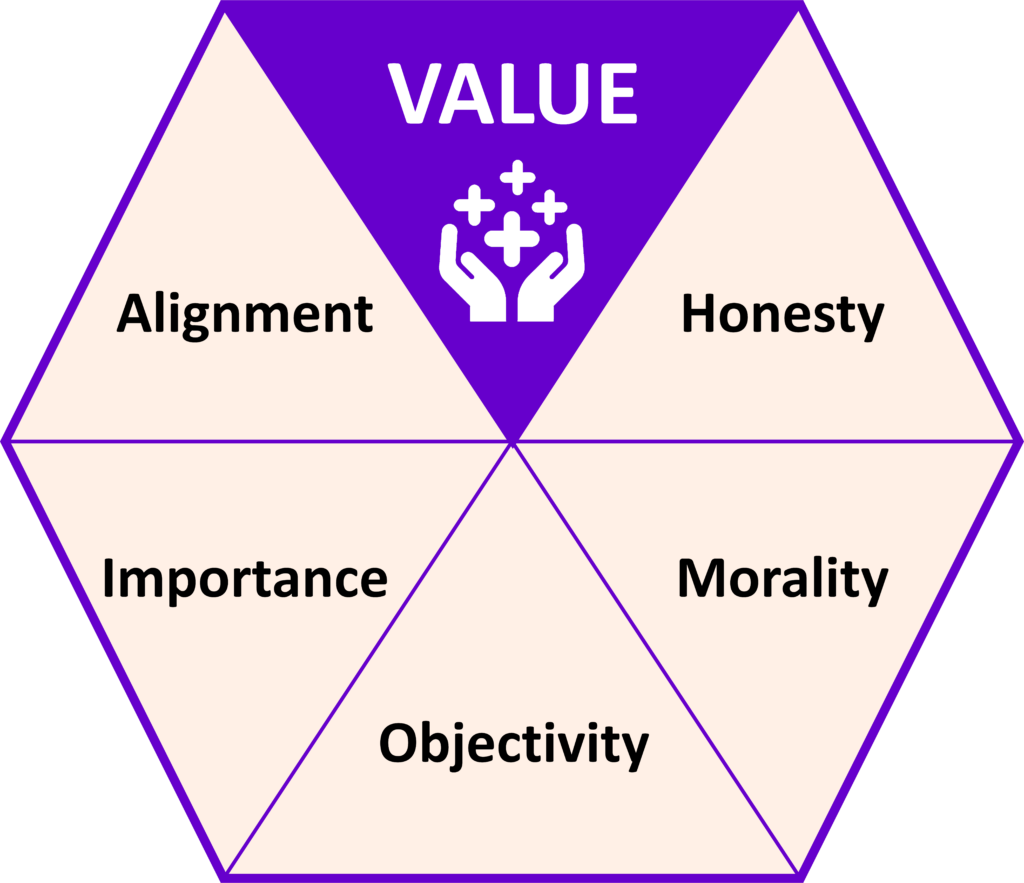Answers: What’s important?
Why Sense of Value is Important to Resilience

The Sense of Value guides one on matters of importance – used in evaluating priorities, for example – and on matters of morality – key in determinations of right and wrong. These are vital decision-making skills especially when confronting challenges. To be true and reliable, this sense relies on objectivity (and neutrality) in considering options – a perspective borne by one’s personal honesty, with oneself and with others. One’s resilience is further enhanced when one’s attitudes and actions are consistently in alignment with one’s values.
When your values are clear to you, making decisions becomes easier. —Roy E. Disney
Without a Strong Sense of Value …
Without a strong, positive Sense of Value … it may be more difficult for you to act decisively and coherently, especially if you are not fully honest and objective in facing your adversity. You may struggle with a sense of confusion about your priorities and what you should do or be tempted to cut corners to quickly achieve your goals.
Action Planning
If you want to develop your Sense of Value further … take time to identify what is really important to you – in your social group, in your lifestyle, in the things you own or control, in your own beliefs and world views. Then take the important step of understanding why these things are important to you … and what you might do to safeguard them.
Possible Actions – Perceive & Ponder
- Reflect on your personal values and what is most important to you, contemplating areas such as your relationships/social group, your lifestyle, your faith/beliefs, worldview, and your possessions or responsibilities.
- Consider whether your choices and actions are in alignment with your values, taking note of any areas that may currently be missing or misaligned.
Possible Actions – Engage & Connect
- Engage in healthy conversation with others with whom you feel comfortable discussing your values to gain both perspective and confidence in speaking about your values.
- Identify any areas in your life where you may want to make changes based on your values, i.e., eliminate activities and/or relationships that are not in alignment with your values or initiate new activities and/or relationships.
Possible Actions – Plan & Pursue
- Consider writing a personal mission statement that highlights who you are, your values, and how you live them or put them into practice.
- Find other tools, activities, and events that may help you more fully understand and articulate your value system.



